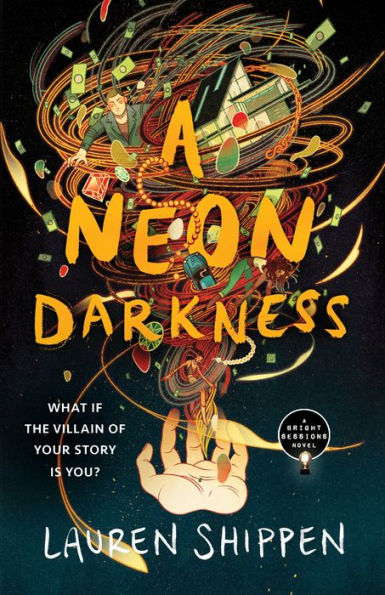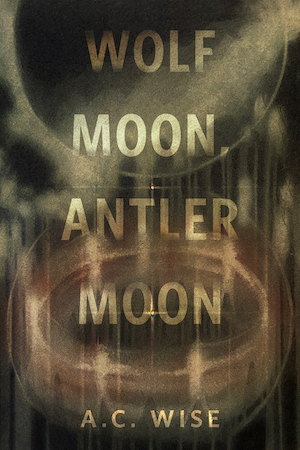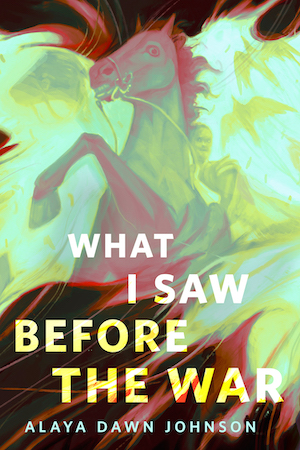A biweekly series, The Ursula K. Le Guin Reread explores anew the transformative writing, exciting worlds, and radical stories that changed countless lives. This week we’ll be covering all of Le Guin’s short YA novel(la) Very Far Away from Anywhere Else. My edition is the 2004 Harcourt paperback.
We have come, perhaps, to one of the strangest books Le Guin wrote—at least at first glance. A YA novel written in 1976 that has probably the most uninteresting back-cover copy ever attached to one of her works…
Owen is an outsider, a loner.
He doesn’t want to be, but when you don’t know who you are, sometimes it’s easier to be outside of everything—even yourself. So he tells himself he doesn’t care.
And then he meets Natalie.
She is bright, talented, quirky—and thinks he is, too.
Natalie laughs at Owen’s silly jokes. She encourages him to pursue his dream of becoming a brilliant scientist. She believes that she will one day be a famous composer. And she insists the two of them accept themselves—and each other—for who they really are inside.
If Owen can find the courage to do that, then anything may be possible.
It’s the kind of “uplifting” claptrap I couldn’t have been less interested in as a teenager, despite my uncannily annoying resemblance to Owen, and find even more blech as an adult. And it’s not because I don’t think literature—YA, genre, or Serious Fiction—can be a place for self-discovery or that the emotional complexity of being a “loner” and discovering (an)other(s) loner(s) to be not-so-alone with isn’t, well, a real thing people go through. I call it “claptrap” because books that premise themselves this way romanticize the idea of lonerhood, of two singular folks discovering each other in a sea of people who just Don’t Get It.
Being a kid is hard, being a teen is hard, being an adult is hard—living in a heteropatriarchal society where you are measured against expectations set by those in authority is hard—and yet the kids in novels that have the cookie-cutter description on the back of Very Far Away from Anywhere Else are also overwhelmingly white kids struggling against typically rather good life circumstances. Like Gossip Girl (which I’ve just started binging) on chill. No doubt, Le Guin can be normative at times, especially in her longstanding investment in man-woman love-couples as one goal of a happy human (broadly defined) life. And, yes, there are lots of intellectual loners in her work. But the novel seemed at the outset, to me, not very much like Le Guin.
Reader, I was (predictably) wrong—sort of.
***
So here’s the premise I like to imagine Le Guin pitching to her editor, in a nutshell:
You remember my novel The Dispossessed from two years ago?
Sure, go on… (a sequel? he’s hoping).
Well, imagine that, but no science fiction, Shevek’s 18, live in Portland, has just discovered he doesn’t really want to fit in, but isn’t sure what that means since life seems to be all about fitting in.
Uhuh, go on… (he’s skeptical, but, let’s hear this out).
OK, and there’s this girl, kind of like Takver, but really into music. And they discover friendship, angst a bit about whether or not they should make sex a part of their friendship or would that ruin everything, and it’s all a bit intellectual and in the end nothing is really settled but they both kind of get what they never knew they always wanted.
And this is…?
Oh, right, it’s a YA book like my Earthsea stuff.
Fine. Add in something about an imaginary island or whatever (y’know, Katherine Paterson just got a great advance for something like that!) and I’ll cut the check.
That’s basically the story of Very Far Away from Anywhere Else: an amalgamation of rainy-day ideas about what Shevek’s teenhood might have been like, had he grown up in the Portland suburbs in the late-1970s and had his story been written by someone whose imagination of The Youths was still stuck in the 1950s (seriously, these teens are tame as fuck for Seventies kids). It starts with worries about not being into basketball and not getting letters on your sports jacket, and moves into the terrain of “I’m a deep intellectual boy who no one gets, and so I kinda keep to myself and make sex jokes with two other boys to keep up the illusion that I want to have friends.” The loner kid, Owen, is just as flat as Edward Cullen, though unfortunately less sparkly (I was Team Edward in high school; the werewolf thing doesn’t make sense!), and the musically talented loner girl, Natalie, is basically Owen’s genderswapped opposite—albeit less prone to Owen’s self-pitying emotional outbursts (which includes wrecking his car in an amnesiac daze after Natalie doesn’t want to kiss him back).
And, weirdly, despite everything: I don’t dislike this novel. I’m not saying I would ever suggest it to anyone but the most die-hard Le Guin fan, or maybe someone interested in late-1970s YA as a scholarly project (though you’d be much better served reading Lois Duncan, who seems actually able to capture The Youths of her time). But the purpose of a Reread like ours is to discover the connections across everything a writer did, while also using it as an excuse to revisit all the things I already like. Very Far Away from Anywhere Else might be very far away from anything else Le Guin ever did, in terms of genre and market, but by the Nine is it caught up in the ideas and influences that drove her writing during this “high period” of the late-1970s.
Buy the Book


A Neon Darkness
In the novel, Owen is a loner who likes science, especially psychology, and excels at school. He’s a pretty regular kid (aside from being smart, I guess), but worries a bit much about not liking sports or other things All The Kids like. He takes a bus one day, accidentally sits next to a girl from school, Natalie, who is also like him (only with music), and they do that thing people sometimes do: they spontaneously converse, jest, and make an impression on one another. In no time they’re hanging out, telling each other about how different they are, how that makes them the same, how they have big hopes and dreams. The tone is sweet but not romantic; Le Guin makes you really feel for these two kids who have finally found companions that really get them—and who doesn’t want that?
As their friendship grows, Owen begins to wonder about whether a guy and a girl can be “just friends” or if love must come into play because of how deep their relationship is. So he decides he Loves her, makes a move, and she rejects it; not because she doesn’t feel similarly, but because she had hoped that maybe they could resist what Society expects. The two part for awhile, Owen fogs out because he’s emotionally distraught by the situation, crashes his car, almost dies, and a few months later he goes to a local church concert where they are performing one of Natalie’s compositions. He cries because it’s so beautiful, the two talk again, try to sort things out, but never really do. In the end, he goes to MIT and she to a fancy summer music academy. The ending isn’t bitter, it isn’t sweet, it just… is. Along the way, the two philosophize about science as a kind of music, music as a kind of science; they learn to accept one another’s intellectual differences and to build them together. Owen reveals the fantasy world he made, Thorn, and Natalie reveals her dream to compose. The two find ways to support each other, to grow separately and together.
Le Guin writes a convincingly honest portrayal of teen friendships under the pressures of a world in which everyone has a Very Normal nuclear family, but in which they want something more, something different, something they pave and create all their own. The story has the emotional intensity of early Earthsea, the intellectual curiosity of the better Hainish novels, and references concepts and ideas that appear throughout the stories and novels we’ve read so far, making this ultimately not far off from Le Guin as the cover had me suspecting (the nod to both Earthsea and Hain in Owen’s imaginary world, Thorn, is particularly pleasing and reads a bit like an ancestor to Bridge to Terabithia, which came out the following year).
And despite these connections to her SFF oeuvre, Very Far Away from Anywhere Else is also firmly grounded in the mundane. Even for a non-SFF novel, it’s mundane! The climax is an argument over whether or not two teens should be romantic; the denouement is their recognition that they don’t have to have an answer, that it’s OK for the tension to remain, to hold open a space for possibility. Very Far Away from Anywhere Else is an exercise in writing a mundane vision of, not exactly utopia, but utopian longing for a young audience uninterested in swords and heroes and spaceships and aliens. If Le Guin has elsewhere written mundane SFF, here she has perfected the mundanely mundane, but made it stimulating, emotionally vibrant, politically open-ended. And she’s written a young adult character who is incredibly emotionally intelligent and available, easily spending 1/8 of the novel crying or lost in a fog of sadness, as well as keenly aware of how and why people, his parents’ generation especially, cling to the ideological fantasies of social norms while not condemning them. Owen is not without his faults, is just about as misogynist as Shevek, but he models the kind of interpersonal understanding it requires to put a utopian movement into action.
***
It’s true that I wrote above rather dismissively about self-pitying Owen and his whole intellectual loner schtick. That is probably an unfair assessment, at least tonally. Owen admits that he and Natalie are, well, pompous: they’re highly intelligent 18-year-olds who find just about everything around them easy; they feel they’re different from everyone else, and so when they converse, they spin off all these grand theories of things. Sounds eerily familiar to some conversations I had one summer camping trip with my friend Nic, imagining a Grand Unified Theory of Existence because, dammit, we’d just finished our first year of college and we knew things! Owen, however, has the self-reflexivity of a highly intelligent, highly successful 47-year-old woman who had just about done with raising her children and seeing them off into adulthood—canny, that, how the experiences of Le Guin as a towering intellect of the SFF world and a loving mother translate into an incredibly humane, sensitive portrayal of the seemingly small things teens go through in that liminal period between late youth and early adulthood.
Children’s literature, of which YA is an historically new species, is meant to teach. Whether that be cultural truths—“we throw the ball to Spot, Dick and Jane, to affirm our identity as red-blooded Americans!”—or ideas about appropriate behavior, and so on. Children’s literature also has the capacity to model the interior lives of children and young adults, especially as kids get on into chapter books and full-blown novels. A book like Very Far Away from Anywhere Else might not necessarily be the most thrilling read, but I imagine for a teenager willing to take it on, it is a masterclass in dealing with the emotional complexities tied to friendship, introversion, parents who you both respect but also don’t want to be anything like, and how to measure your dreams against reality. Le Guin carefully traces how Owen and Natalie “act” like humans, and in doing so provides a blueprint for getting on, growing up, and being OK with being ourselves in a hostile world that doesn’t want anything for us but the cookie-cutter nuclear family fantasy—long falling apart in reality by the 1970s but still stuck in America’s dreams like a painful kernel between two molars.
Very Far Away from Anywhere Else is not a pleasant read; it’s not even really a sweet or bittersweet read (as far as the relationship between Owen and Natalie goes, it’s somewhere in the middle). But it’s an instructive one: it’s OK to be different, it’s OK to not want for yourself what your parents want, and it’s OK to wrestle with feelings, societal expectations, and to ultimately leave things not really clear. It’s OK for Owen and Natalie to admit that, as a guy and a girl who are best friends, and who feel social pressures to be romantically involved as a result, but aren’t sure if what feelings they have are real or societal—it’s OK for them to admit they don’t know what to do, and to kind of leave it there. It’s something to figure out as time unfolds, as they grow up, as they experience MIT and Tanglewood, as they discover a world beyond Portland’s suburbs and Jade Beach and Thorn.
This is something we could all do to remember, to practice, as we go through new phases in life—individually—and face new fronts in history—collectively. There are social scripts in place, but they aren’t the only scripts, and sometimes the scripts will be wholly inappropriate to our growth: just think of how much has changed since March of this year, how many things we’ve had to rethink together and separately, and how weird formerly normal things have become. Owen annoys the shit out of me, partly because the kind of character he is, is not someone that I (and many others) want to read about anymore. But his journey—not setting aside how the first-person narration sidelines Natalie’s experience and raises questions about the expected male perspective of so many YA fictions (then, though much less so now)—is like so many other journeys in Le Guin’s writing: a powerful reminder that change is life, that the big climax of the action matters very little when compared to everything else that happened along the way. There’s no great big takeaway here, just a reminder to be willing to be vulnerable to the tides of time, emotion, impermanence, and the clashes of desire and being that are inevitable in a world with other humans.
I joked that Very Far Away from Anywhere Else was essentially the non-SFF story of Shevek, but it’s really not so far from the truth. Pithy and punchy though the comparison may be, Le Guin has distilled lessons of her SFF epics into a short, intellectual, and thoughtful novel about growing up. That’s what all these stories are, anyway, right? And that’s what utopia is: us figuring out how to grow up, move on, see the problems, make the changes—or not. And it’s the impermanence of it all, the unsolved tension between Owen and Natalie’s will-they-won’t-they, that holds space for possibility.
Before I go, though, I’m curious if others have read this novel? How do you react? How did it gibe with your memory and experience of Le Guin’s writing? When did you read it and how did that impact your reaction? I hadn’t heard of Very Far Away from Anywhere Else before putting together the full list of her publications for the reread, despite a great deal of familiarity with her work, and I’d love to know others’ experiences with the touching little book.
***
Join me in a month on Wednesday, October 7 (after a short Reread hiatus!) as we dive into Le Guin’s Orsinian tales. There are several different versions of this, including the recent and more widely/readily available Library of America volume (linked above) that includes the stories, novel (Malafrena), and poems. I will be looking first at the stories, originally collected in 1976 in a volume called Orsinian Tales. The volume I’m reading from can be found here. Be seeing you!
Sean Guynes is an SFF critic and professional editor. For politics, publishing, and SFF content, follow him on Twitter @saguynes.










